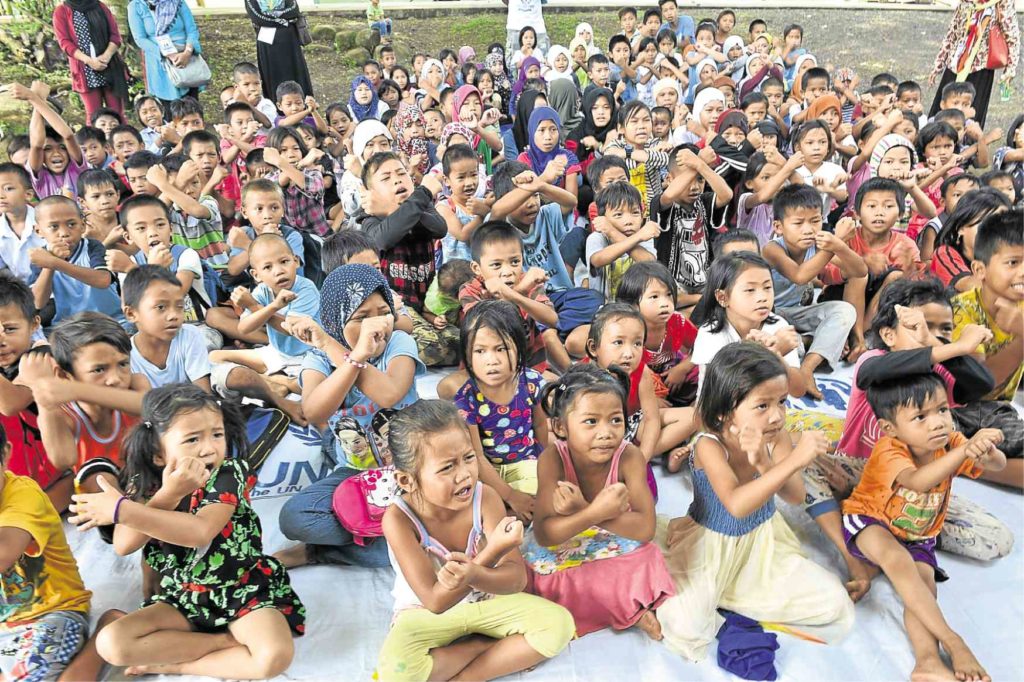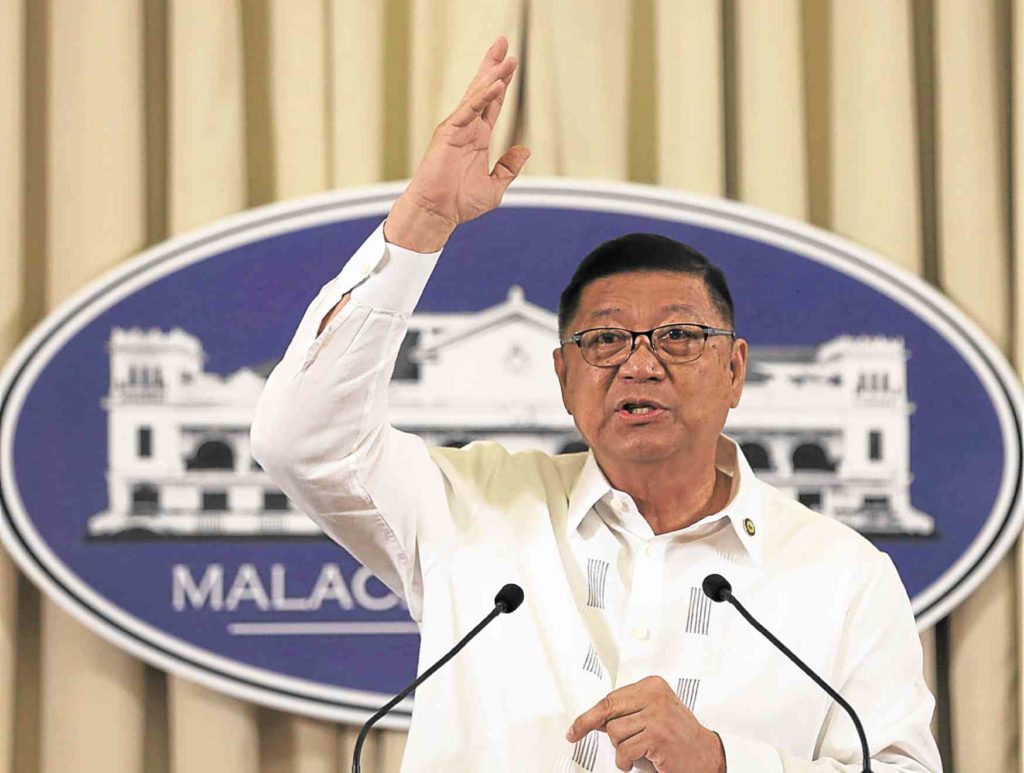Giving Marawi’s children of war a sporting chance

Child evacuees from Marawi participate in an activity conducted by the Philippine Sports Commission. On the right, Chair Ramirez reports the PSC’s grim finding in Malacañang. —JOAN BONDOC
Young children don’t lie, sociologists and crime investigators will tell you that. So imagine the shock of people in government when they learned first-hand recently that some of the children displaced by the fighting in Marawi want to be fighters of the Maute group when they grow up.
What made these children idolize the fighters of the Islamic State-inspired terrorist group? There are many reasons only sociologists would know for sure.
It took the Philippine Sports Commission, the government agency that funds the training of national athletes, a day with the children to unearth the disturbing reality.
While participating in the “Children’s Games” which the PSC held to cheer them up in an evacuation center in Iligan City, the children, in reply to a question, told the agency’s people that they look up to the Maute fighters, according to a report by the Inquirer’s Leila B. Salaverria.
No one among them mentioned any of the country’s national heroes or sports idols. “We were stunned, we couldn’t believe what we heard,” says PSC Chair William “Butch” Ramirez. “It took a while for us to realize that these are the children of Marawi and some of them may have relatives among the Maute,” the terror group which has fought government forces for more than six weeks now in the Islamic city by Lake Lanao.
Indeed, the PSC games for kids 12 years and younger has now become an instrument of peace in Marawi, Iligan and in nearby towns and cities affected by the conflict.
In a press briefing two weeks ago in Malacañang, on the day he reported the disturbing news to President Duterte, Ramirez said the two-day competitions in football, volleyball and traditional “larong Pinoy” among 300 children opened the eyes of the government to the plight of the children in Marawi.
Non-government organizations (NGOs), he says, are now working with the military to educate the children and help them understand the conflict better. Holding sports activities for the kids on a regular basis “could help bridge cultural and religious gaps” in Mindanao.
“We plan to go back to the evacuation centers and focus on helping these children,’’ says Ramirez.
At Sgt. Miguel Canoy Memorial Central School in the quiet barangay of Buru-un, about 37 kilometers from Marawi, PSC coaches and team leaders also held character-building sessions among the children. The objective was to help cushion the blows of the war and give the “bakwit” children a reprieve from their present situation.
As reported by Salaverria, quoting Ramirez, “Some of them wanted to be members of IS because the group provided them with food and paid their fathers, while they got nothing from the government.”
The PSC chief also pointed out that the children may have been influenced by the Maranaos’ historic hatred for the Spanish and American colonizers. “Food isn’t just the problem,” says Ramirez. “Their anger … it’s about how they are treated.’’

Food isn’t just the problem. Their anger … it’s about how they are treated William Ramirez Phil. Sports Commission Chair
Ramirez first learned of the value of the Children’s Games during his first term as PSC chair under the administration of President Gloria Macapagal-Arroyo. At that time, he hosted the games for the children of Moro Islamic Liberation Front fighters and their counterparts from Christian communities in the area.
With Malacanang’s blessing, Ramirez revived his advocacy and started the Children’s Games in Davao City last May, on the same day the President put Mindanao under martial law. The Davao games and the succeeding competitions in La Trinidad, Benguet, were a huge success with over 1,000 kids participating.
But the most challenging leg of the games was in Iligan, where thousands of Marawi evacuees now live in abject poverty.
Other government agencies joined hands with the PSC, according to sports Commissioner Charles Maxey. Along with a medical contingent, the Department of Health sent a magician to entertain the children.
Professor Henry Daut, the deputy national training director of the PSC-Philippine Sports Institute who hails from Iligan, spearheaded the event and emphasized the importance of the games among the young evacuees.
“Play is something natural for children,” Daut says. “Through this, we make them feel how valuable they are to us in the midst of this situation.”
After the country begged off from hosting the 2019 Southeast Asian Games, Ramirez says Malacañang will instead use the funds intended for the biennial meet to help rebuild Marawi and organize sports programs for the city’s children.
“With these activities, we can inspire young Maranaos to live a more productive life, instead of following a path to extremism,’’ he says.
